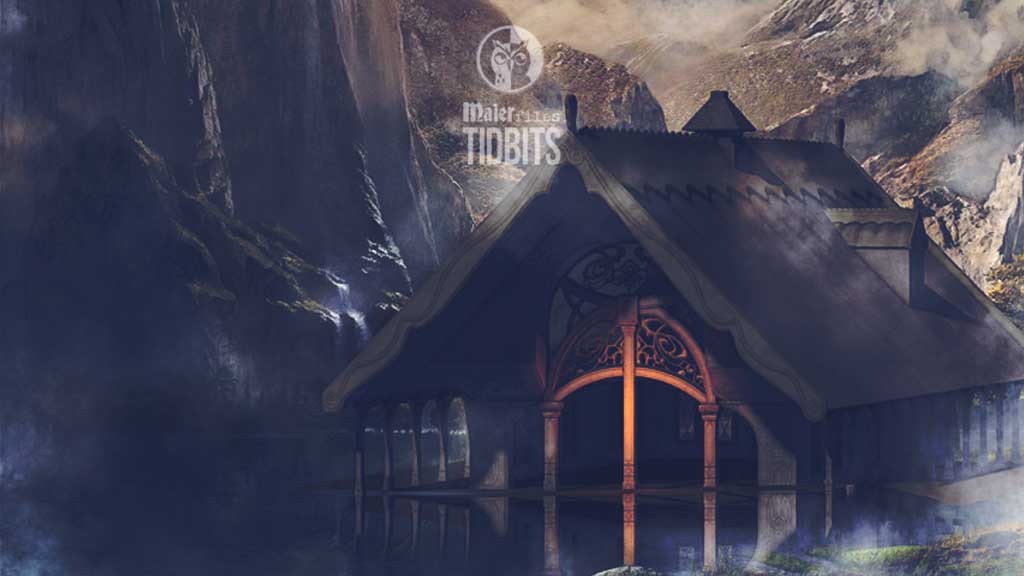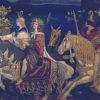We already mentioned goddess Saga (https://www.maier-files.com/what-you-didnt-know-about-saga/), now let’s meet Frigg. Frigg was one of the more widely worshipped Germanic goddesses, appearing in Scandinavia, Britain, and on the Continent. Snorri names her the foremost of the Asynjur, a group of goddesses described as being equal in holiness and authority to the male Aesir (Gylfaginning, ch. 20). Nevertheless, very little is known about her worship, and until recently she has often been overshadowed by the better-known figure of Freyja.
Frigg is the wife of the Aesir’s leader, Odin, and the mother of Balder the Beautiful, who was slain by his blind brother, Hod, through the machinations of Loki. Her name comes from an Indo-European root meaning “love” or “pleasure” and could be interpreted as “beloved,” “lover,” or “wife.” She has a dwelling called Fensalir (“Hall of Mists,” “Sea Halls,” or “Marsh Halls”), which is described as “most grand” (Gylfaginning, ch. 35). Friday, was named for her and was traditionally considered a good day for marriages. The Romans associated Frigg, as well as Freyja, with their goddess Venus, and the planet Venus has been called friggjarstjarna (“Frigg’s star”)
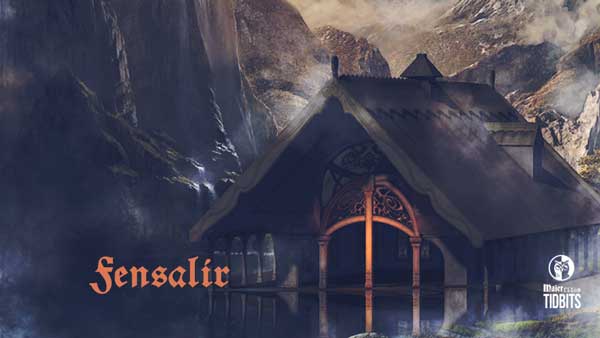
One of Frigg’s functions is ruling as queen of Heaven. She sits on the council of Aesir judges, as mentioned in the Skáldskaparmál of the Prose Edda (ch. 1), and she alone shares with Odin the throne of Hlidskjalf, from which they can look over all the Nine Worlds. Besides to be a powerful queen she’s also an important counselor, as it was one of the specific roles of the Germanic women. In the Vafþrudnismál (sts. 1–4) we can see an example of Frigg’s role as counselor.
At the beginning of the story Odin asks Frigg what she thinks of his visiting the giant Vafthrudnir to match wits with him. Frigg warns Odin of the danger involved in the venture, but because he definitely wants to go, she gives him her blessing, which seems to be a magical warding. In this brief conversation we see the respect Odin has for his wife’s advice, the careful and wise counsel she gives, and Frigg’s understanding of Odin’s pride and need for knowledge, which spur him on to the adventure, despite the acknowledged danger.
Langobard people
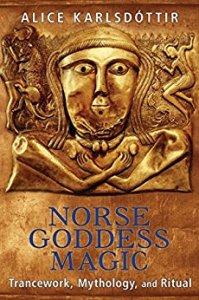
An anecdote worth telling was written down in the seventh-century text Origo Gentis Langobardum (The origine of the Langobard people) – Lombard people, a Germanic people who ruled large parts of the Italian Peninsula from 568 to 774. The story is about an occasion when Frigg influenced the outcome of a battle in Midgard in which Odin had a stake.
In this tale the leaders of the Vandals ask Odin for victory in battle, but he says he will favor those whom he sees first at sunrise, possibly assuming that it will indeed be the Vandals. Frigg, however, is solicited for help by the queen of the Winniles and her sons. Frigg advises her favorites to have all their people get up early the next day. She also instructs their women to plait their hair over their chins like beards, put on armor and weapons, and march at the head of the army.
The goddess next waits until Odin is asleep and then turns his bed around to face the Winniles. When Odin awakens, the first thing he sees is a bunch of peculiar-looking warriors with extraordinarily full beards. “What Longbeards are these?” he exclaims.
Now Frigg has him. He’s not only seen the Winniles first, he’s given them a new name—the Longobarden (Lombards)—and by custom is bound to give them a name-gift, the victory. Odin good-naturedly concedes that he’s been cleverly tricked and from then on becomes the Lombards’ special patron. Perhaps this indicates that those asking Odin for victory would be advised to enlist the aid of Frigg as well. It certainly shows that Frigg has influence and power in spheres other than the home, like any good queen; it also shows that even the great Odin must sometimes yield to Frigg.
Second sight
Frigg, as well as Odin, possesses magical powers, notably second sight. She is said to know the fates of all people, though she never says what she knows (Lokasenna, st. 29). Perhaps she doesn’t feel it advisable to tell others their fates before they’ve lived them out. It has been mentioned before that Frigg shares Odin’s seat, Hlidskjalf, from which the two can see all that happens in the Nine Worlds; therefore, Frigg could be considered a goddess of scrying.
Frigg’s hesitation to interfere in fate possibly origins from her tragically unsuccessful attempt to avert her son Balder’s death in what is probably the best-known myth about this goddess (Gylfaginning, ch. 49; Baldrs draumar). In it, the beloved god Balder is troubled with foreboding dreams, and Frigg sends word into all the worlds to extract an oath from everything—fire and water, metals, stones, illnesses, plants, animals, and people—not to harm her son.
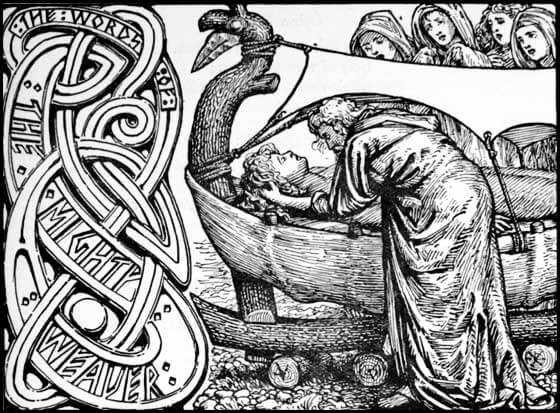
After this, the gods get cocky and initiate a game in which they amuse themselves by throwing all sorts of weapons at Balder and watching them turn away without hurting him.
Loki, disguised as a woman, visits Frigg and discovers that she has neglected to ask an oath from only one thing—the mistletoe, which she considered too young to take an oath. Loki then takes some mistletoe to the Thing, the lawgiving assembly, where he finds the blind Hod standing a little dejectedly to the side.
Hod says he is not participating because he is blind and has no weapon, so Loki gives him the small dart of mistletoe and offers to guide Hod’s aim.
The mistletoe
The mistletoe shoots Balder through and he falls down dead, whereupon the other gods are overcome by grief, not only for their fellow’s death but also because he died at the hand of a kinsman on the sacred grounds of the Thing and thus no one who is present may take vengeance for him and restore the Aesir’s lost honor.
By her own actions she brings about the circumstances that lead to Balder’s death, for the gods would never have been throwing weapons at him if Frigg had not made all things swear oaths not to hurt him. Yet in a way, she saves him after all, because he and his blind brother, Hod, both will survive Ragnarok because they are safe in Hel’s kingdom, and the two gods return again to rule over the new Asgard.

